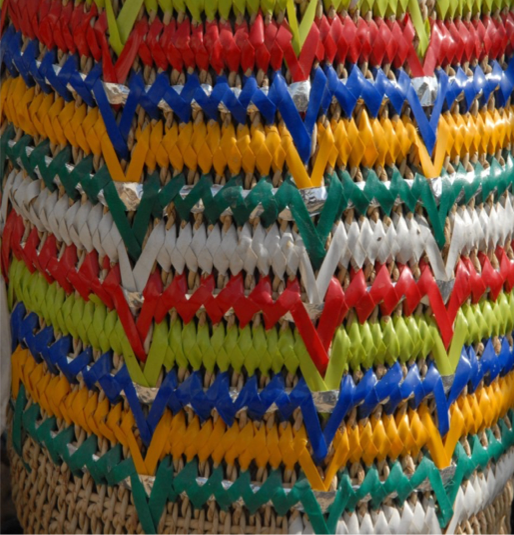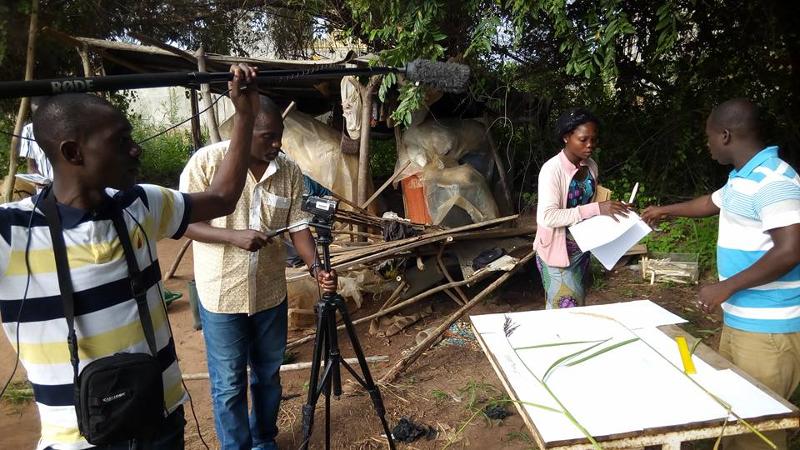THE VISCAM PROJECT AT VISUAL CULTURAL STUDIES AT DEPARTMENT OF SOICAL SCIENCES INVITES FOR PHD COURSE
Revised program:
TUESDAY 10.04
0830-0845 Opening (at room 5.304, house 5, near the VCS seminar room)
Associate Professor Bjørn Arntsen, leader VISCAM project, UIT
0845-1000 Professor Ilya Utekhin, European University at St Petersbourg, Russia
Camera as protection – Camera as a Risk
Screening "Bullet's Flight" by Beata Bubenets. http://artdocfest.com/234 (72 minutes)
Bullet's Flight (Полет пули). 2018
Genres: War chronicle, Runtime: 80 min. Russian Federation
Film language: Russian, Ukrainian/ Director: Beata Bubenets
80 minutes, taken in one shot. The episode that took place during the military operations in the Donbass.

There is neither past no future or other worlds when you are falling under a fire and lying down in a trench. There is just here and now. You hear a sound of bombs and one of them can reach you, but you don't feel fear. It turns out that the fear doesn't exist. The existence of fear depends on the past or the future, but in the present there is no fear. In the present, you realize very clearly the possibility of death, but you don't worry about it. You can’t control if the bomb will hit you or it won’t. So you realize the area of your responsibility. The only thing that depends on you, the only thing you can do is just lye down on the ground and don't raise your head. You haven’t any emotions about this. You just do it. And an armed soldier of the Ukrainian army is lying next to you and he is holding you to prevent your escape. He has an order. He was told that you are a Russian spy. And you don't know what will happen to you if you will survive after this bombardment. And after the bombardment it was the night in captivity of the same uncertainty. It seems to me that at those moments my life was reset. After the captivity, I got into a group of volunteers from the “Aidar” battalion and its members became my new world. I want to tell about that world in 80 minutes of this video. I didn't turn off the camera, because it seemed that the life was lasting while recording was on.
(the screening takes place in the cinema 6.222)
1000-1015 Coffee break
1045-1415 Professor Ilya Utekhin, European University at St Petersburg, Russia cont.
Thoughts about working with a camera in a dangerous field (the middle of a civil war).
The conflict in Eastern Ukraine
Discussion
1145-1245 Maria Kirpichenko, Research Fellow, NTNU, Trondheim
Crisis & gender/The gendered crisis
Discussion
1245-1345 Lunch
1330 -1430 Dr Ibrahim Ag Youssouf, researcher, Mali –France - Norway
Local peace: Peace agreements are not enough, pragmatic local peace by ordinary people is crucial for short term and long-term peace.
1430-1530 Associate Professor Trond Waage, VCS - VISCAM, UIT, Norway
Disappearing – why does violent network like Boko Haram increase their size?
1515-1545 Coffee break
1545-1715 André Ganava, PhD candidate, University of Maroua, Cameroon
Cross-border smuggling of goods in the far north region of Cameroon: a strategy for survival of vulnerable populations in Logone Chari and Mayo Tsanaga
1800 Dinner at Flavours Café and Restaurant. Vestregata 27-33
WEDNESDAY 11th
0830-0930 Associate Professor Zakiyatou Oualet Halatine, SAR – VCS – VISCAM, UIT, Mali
Development of competences for local and national durable development. Zakiyatou has developed a concept called “3P” to develop competencies as a tool for enterprise development, particularly in Mali and in Africa in general.
0930-0945 Coffee break
0945 - 1200 Professor Emerita Lisbet Holtedahl, VCS - VISCAM, UIT, Norway
Crisis & gender.
Screening of ‘Wives’ 90 min. A film by Lisbet Holtedahl. 2017
Discussion
1200-1300 Lunch
1300-1500 Dr Sidylamine Bagayoko, Researcher, University of Bamako, Mali
Impact story and impact video
As visual anthropologists and writers, our job is to amplify voices, which is another way of telling stories - in a manner that makes people want to read, listen, watch and act. presentation will lead the writer from the beginning to the end in telling a visual story—a story that will be read and shared and that will make a difference for the people about whom you tell the stories using still photos or video.
Screenings of excerpts from Sidylamine’s films
Discussion
1500-1515 Coffee Break
1515 -1645 Hamidou Moussa, PhD candidate, VISCAM, Cameroon
Coping strategies of Mbéré division pastoralists in situations of environmental change and security crisis
Discussion
1645-1745 Professor Ilya Utekhin, European University at St Petersburg, Russia
Instagram photographs as ethnographic source
THURSDAY 12th
in the Cinema:
0900-1000 Associate Professor Bjørn Arntsen, VCS – VISCAM, UIT, Norway
Visual approaches to the analysis of crisis and corruption
1000-1015 Coffe
1015-1045 Associate Professor Aboubakar Ouattara (ISK and VCS, UIT)
The concepts of crisis, insecurity and conflict from a cognitive semantic view point.
1045-1215 Amandine Tezore Phd candidate, VISCAM, Cameroon
Vulnerability and resilience of disaster victims in Mayo Tsanaga division in the far nroth region of Cameroon.
1215-1315 Lunch
1315-1445 Dr Sidylamine Bagayoko Reschearcher, University of Bamako, Mali
The State in Africa and its popualtation
Gender, ethnicity, religion, economy
Discussion
1445-1500 Coffe
1500-1600 Final debate: Visual anthropological Knowledge building: lessons learned
Chair: Pr Ilya Uthekin, European University St Petersbourg, Russia
Introductions to debate:
Associate Professor Bjørn Artnsen, (VCS- VISCAM)
Dr Ibrahim Ag Youssouf, Researcher, Mali – France- Norway
Dr Sidylamine Bagayoko, Researcher, IUniversity of Bamako, Mali
1600-1610 Associate Professor Bjørn Arntsen, VCS – VISCAM, UIT, Norway
Closing the workshop
Interested in the course?
Please contact Professor Emirata Lisbet Holtedahl (lisbet.holtedahl@uit.no)
Readings:
De Herdt, T. and Olivier de Sardan, J.P. (2015) Introduction: the game of the rules. In De Herdt and Olivier de Sardan (eds.) Real Governance and Practical Norms in Sub-Saharan Africa. The Game of the rules. Routledge, New York (1-16)
Ferguson, J: (2006) Of Mimicry and Membership: Africans and the 'New World Society' in Global Shadows. African in the Neoliberal World Order. Duke University Press.
Grønhaug, R. (1978) Scale as a Variable in Analysis: Fields in Social Organization in Herat; Northwest Afghanistan. In Scale and Social Organization. Barth, F (ed.) Universitetsforlaget, Oslo (78-121)
Henley, P. (2004), Putting Film to Work. Observational Cinema as Practical Ethnography. In Pink, S. Alfonso, A. (eds.) Working Images – Methods and Media in Ethnographic Research. Routledge, London. ISBN 0-415-30654-x
Herzfeld, M (1997) Anthropology and the politics of significance, in Social Analysis: The International Journal of Social and Cultural Practice Vol. 41, No. 3,
Holtedahl, L (1993) Education, economics and «the good life»: women in Ngaoundéré, Northern Cameroon, i Itinéraires d’accumulation au Cameroun, Geshire, Peter and Konings, Piet (red.), Paris : Karthala
Holtedahl, L (1997) Magic and Love on the Road to Higher Education in Cameroon. in: Transforming Female Identities. Women’s Organizational Forms in West Africa, Rosander, Eva (red.), Uppsala: Nordiska Afrikainstitut.
Long, N. (2000) Exploring local/global transformations. In Arce, A. and Long, N. (eds.) Anthropology, Development and Modernities. Exploring discourses, counter-tendencies and violence. Routledge, London. (184-201)
MacDougall, David 1998 Visual Anthropology and Ways of Knowing in Transcultural Cinema. Edited and with an introduction by Lucien Taylor. Princeton: Princeton University Press.
Vigh, H (2008): Crisis and Chronicity: Anthropological Perspectives on Continuous Conflict and Decline, Ethnos: Journal of Anthropology, 73:1, 5-2
Waage, T (2015) Mutual Dependency: Young male migrants from the Central African Republic in Urban Cameroon, in Zeitschrift für Ethnologie 140, 111-130
Ends: 12.04.18 at 00.00

